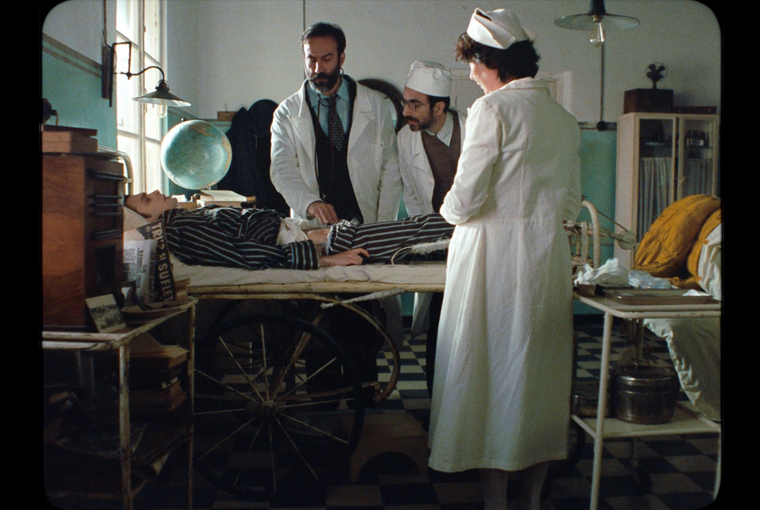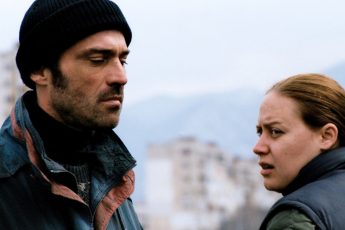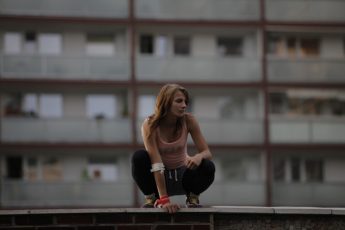
In past editorials, we have repeatedly advanced the thought that a country’s way of handling its film fund is a revealing initiation into its political landscape more generally. Thus, the appointment of a film commissioner with almost single-handed authority over funding decisions by Viktor Orbán reflects the latter’s authoritarian ambitions, just as Romania’s corrupt film fund is symptomatic for the way the Romanian ruling class is obsessed with serving its own interests. This notion recommended itself again during a meeting of the Vake Park Film Movement that EEFB attended on September 17th in Tbilisi, Georgia. The informal event was held in a café in the Vake Park – a green area in the heart of Tbilisi that has been the scene of squats and large-scale protests against plans to build a hotel within the confines of the public area (in short, a fitting venue for the formation of another protest movement). True to the philosophy of a horizontally organized protest movement, the scene was confusing, with members of the Vake Park Film Movement – who were seated on the venue’s stage in a long row – taking turns with the microphones, and interrupting, endorsing or thanking each other. After only thirty minutes, the meeting ended with vague invitations for the audience to “share their experiences”. And yet, thirty minutes and a few pointed accusations were enough to convince one that the Georgian National Film Center has a serious issue with its funding process. The Vake Park Film Movement had formed after one of its founders found out that members of the commission that rejected his film were questioning the use of slur words in his script (one member of the commission reportedly even called for censorship). Though the Vake Park Film Movement reacted with vague and sometimes misguided suggestions (one speaker called for modelling the funding process upon Romania), their effort is not only a welcome exertion of pressure on the national film fund. It also indicates the formation of an active, civil society beyond the traditional political concerns. That members of the Vake Park Film Movement are seriously calling for the GNFC’s director to single-handedly appoint members of the commission, proves that they trust in the accountability of officials before the public more than they trust in the appointment by lot that is currently in practice. This would have been unimaginable under the authoritarian rule of ex-president Mikheil Saakashvili, whose oppressive politics might not even have allowed such a scandal to happen. After all, though the protesters of the Vake Park Film Movement are rightly calling for more transparency, they are only able to do so in virtue of having gained access to the commission’s verdict. And that itself requires a grain of transparency.
***
This month’s issue is our first publication after our summer break, which means that we’re bringing you all the material that has added up in the past few weeks. First up is our coverage from the Karlovy Vary International Film Festival (July 1-9) which features reviews of two films that tackle Othering, a problem we addressed in a special issue earlier this year. Kills on Wheels is both a typical action-comedy and a cutting-edge project featuring people with disabilities in the roles of characters with disabilities, while Normal Autistic Film tries to be what it title says it is, and almost succeeds. Colette de Castro saw Ivan Tverdovsky’s Zoology and Cristian Mungiu’s Graduation – an unconventional, Russian entry and the slightly formulaic, latest film of one of the masters of Romanian cinema. Finally, Patricia Bass saw In Your Dreams!, a failed attempt to fit magical realism into a sports-themed coming-of-age story. We also bring you reviews of several films from the Sarajevo Film Festival (August 12-20). Among other films, Zoe Aiano saw Ralitza Petrova’s bleak but exciting Godless, and Scarred Hearts, with which Radu Jude continues his run of innovative and masterful features (this one is inspired by the writings of Max Blecher). Train to Adulthood is also worth singling out for its much-needed critique of the failure of the modern social state.
Our coverage of the Karlovy Vary and Sarajevo film festivals is complemented by another two festival favorites: Vitaly Mansky’s Under the Sun, which leads Moritz Pfeifer to challenge the widely-held belief that North Koreans are uncritically imbibing their regime’s overbearing ideology, and The Dazzling Light of Sunset, the first feature-length documentary by Georgian filmmaker Salomé Jashi. John A. Riley, who submitted the review of The Dazzling Light, spoke to Jashi about the experience of making her full-length debut and the role of local media in Georgia.
We hope you enjoy our reads.
Konstanty Kuzma & Moritz Pfeifer
Editors




Leave a Comment